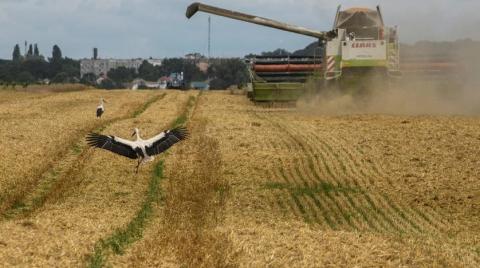
During the course of the NATO Summit in Washington last week, Turkish President Recep Tayyip Erdogan said he had extended an invite to Syrian President Bashar Assad to meet either in Turkiye or a third country. He added that the issue would be followed up by Turkiye’s foreign minister. After previously labeling Assad as “cruel and terrorist” and calling for his prosecution in The Hague, Erdogan is now referring to him as “Mr. Assad.” The important question is what does this mean for the Syrian opposition? Does it mean that Assad has won?
Erdogan is known for his pragmatism. He knows how to change his position when it suits his interests. The Iranians are waiting for the result of the proposed Turkish-Syrian meeting. So far, Assad has not accepted the invitation. Though Turkiye has signaled that it is open to a deal with Assad, it is not offering unconditional normalization. Nor has it shown that it is willing to make any concessions.
According to my sources, the potential meeting will tackle four issues. The first issue is the legitimization of the Turkish presence in the north of Syria. The Turkish involvement in this area dates back to the 1990s. In October 1998, Syria signed the Adana Agreement with Turkiye, under which the former does not allow hostile activities against the latter. The agreement came after Hafez Assad abandoned Abdullah Ocalan, the founder of the militant PKK. Assad had been tactically using Ocalan, who was based in Syria, to create nuisance and blackmail its northern neighbor.
In 1997, when the PKK was designated as a Foreign Terrorist Organization by the US, Ocalan became a liability. In addition to the terrorist designation, Turkiye started threatening military action. To redeem himself, Hafez Assad included in the Adana Agreement a provision whereby the Turkish military could chase PKK fighters up to 5 km into Syrian territory. Hence, in principle, Turkiye has the right to enter Syrian territory to protect its own territory from terrorist attacks.
The coming meeting with Bashar Assad is meant to emphasize the Adana Agreement and to enhance it and expand it. Perhaps it will include a larger swath of land? On the other hand, the more control Ankara has over northern Syria, the more space it has to relocate refugees from Turkiye back to Syria.
Secondly, although Turkiye does not want to give up any of the territory that is under its control, it does want the Assad regime to have more control over Kurdish areas. Ankara felt threatened by the Autonomous Administration of North and East Syria’s recent announcement that it would hold municipal elections. The elections were planned according to a new administrative configuration that is different to the one devised by the Syrian state. Hence, this a prelude to autonomy. Autonomy is contagious. The last thing Ankara wants to see is the Kurds seeking autonomy. The Kurdish issue is deemed an existential threat by Turkiye.
The third objective is to seek approval to conduct an operation to separate the PKK from the PYD. In this respect, Turkiye recently launched an operation in the province of Duhok in Iraqi Kurdistan. However, to create a buffer zone between Iraq and Syria that prevents the movement of the PKK, Ankara needs to have the approval of both Syria and Iraq. It is already in negotiations with Iraq.
The fourth objective is to push the political process. This is why Turkiye keeps mentioning UN Security Council Resolution 2254. The political process is an issue that Assad avoids like plague.
Though Turkiye has signaled that it is open to a deal, it is not offering unconditional normalization.
Dr. Dania Koleilat Khatib
The open invite to Assad is by no means a signal that Turkiye has abandoned the opposition. On the contrary, the fact that Ankara is open to negotiating with Assad makes it keener on safeguarding the opposition. The opposition is leverage Turkiye can use when negotiating with Assad.
For Assad, his only supposed show of strength is putting some conditions on Turkiye. He conditioned any negotiations on the withdrawal of Turkish forces from Syrian territory. If he gives up on that, what is left for him to claim any sort of legitimacy? Nothing. He already has a weak army. He lives on a lifeline extended by the Iranians and the Russians. If he accepts the Turkish military presence, he has nothing left.
In an interview with Russia Today this week, Assad reiterated that, to have Syria-Turkiye relations return to how they were pre-2011, Ankara would have to give up its support for “terrorism” and respect the sovereignty of Syria. It is inconceivable that Turkiye will withdraw from Syria. With a weak state and the presence of empowered Kurdish separatists, Turkiye’s military presence in Syria is a national security imperative.
Turkiye needs to stay in Syria to make sure it protects its territory. It will not withdraw from the northwest. Additionally, the opposition groups in Idlib are irreconcilable with the regime. Turkiye will not withdraw and allow carnage for which it will be blamed. Also, there is no trust that Assad will be a good neighbor.
Ankara hugely distrusts Assad. Moscow, which is a main backer of Assad and has extensive ties with Turkiye, has tried to bring the two parties together before. In December 2022, the Turkish, Syrian and Russian defense ministers met in Moscow. Another meeting between officials of the two countries was brokered by the Kremlin the following year. However, no real progress was made.
Assad wants a concession from Turkiye that will boost his legitimacy, but Ankara is unwilling to oblige. Hence, despite the talk of normalization, no breakthrough is expected and Turkiye is unlikely to abandon the Syrian opposition. Assad is reluctant to meet with Erdogan. He knows that such a meeting would be a losing deal for him and a winning deal for Erdogan. The meeting would be a veiled recognition of the Turkish presence in Syria.
Any Turkish-Assad rapprochement will be unlikely to result in a grand deal that would streamline bilateral relations. The differences between the two sides are too great. Assad will not engage in any political process with the opposition that will end the current conflict. Turkiye, on the other hand, will not withdraw from the north and endanger itself, nor will it give up on the opposition.
• Dr. Dania Koleilat Khatib is a specialist in US-Arab relations with a focus on lobbying. She is co-founder of the Research Center for Cooperation and Peace Building, a Lebanese nongovernmental organization focused on Track II.










